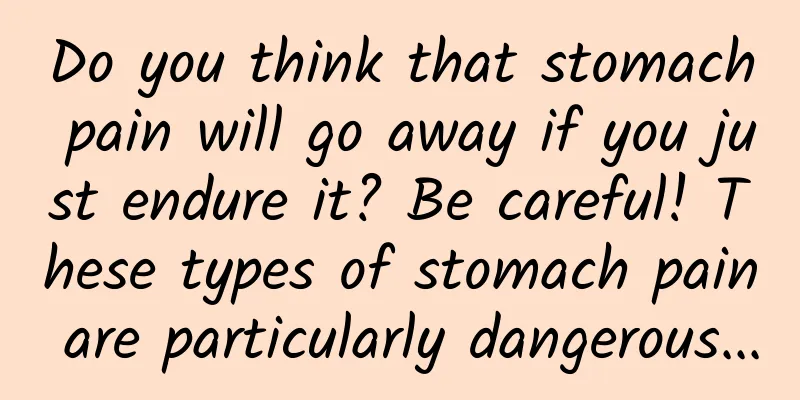Can I drink ice water during menstruation?

|
First of all, in the food health and wellness world, the most well-known point is: eat soft food and don't drink cold drinks. For example, you can't drink cold boiled water, you have to drink warm water; you have to wait until the food you just took out of the refrigerator is eaten; it is best to heat up apples in winter...As for women, among the various taboos during menstruation, the most widely circulated one is that women during menstruation cannot touch cold water or eat cold food. Not to mention what kind of harm will be caused by the real "taboo", in real life there are indeed women who do not avoid eating and are safe and sound. What is the reason for this? Will drinking cold water cause menstrual pain? Menstrual pain is indeed one of the most common symptoms during women's menstrual period and it is also a nightmare for many women. According to different reference materials from all over the world, its prevalence rate is between 20%-90%. However, pain is ultimately a subjective feeling, and everyone's threshold is different, so the pain felt is also different. During menstruation, due to changes in the levels of estrogen and oestrogen in women's bodies, the uterine wall collapses and bleeds. The endometrial cells release prostacyclin (not just men), which causes the uterine muscle layer to contract and smooth muscle ischemia, resulting in menstrual cramps and pain, which may even be accompanied by gastrointestinal reactions such as nausea and vomiting, resulting in menstrual pain. In addition, there is no direct evidence that drinking cold water has anything to do with menstrual cramps. Some women do feel better after drinking boiled water or brown sugar ginger water during their menstrual period, but this does not mean that drinking cold water will aggravate menstrual cramps, let alone leave any problems and cause health problems in the next few decades. Just like drinking boiled water can quench thirst, but drinking cold water will increase thirst. Some women experience menstrual cramps after drinking cold water during menstruation, but it is not the cold water that is to blame. The so-called "cold legs" are actually osteoarthritis, but the cold itself will not cause osteoarthritis, nor is it a risk source of arthritis. It is just that the changes in temperature and standard air pressure in a cold environment will affect the viscosity of the joint fluid, affecting the blood circulation around the joints, and then causing joint pain. Similarly, whether you can drink cold water during menstruation also varies from person to person. For example, Japanese girls with black hair and yellow skin have been drinking cold water since childhood. Except for drinking tea, drinking cold water during menstruation does not aggravate menstrual pain, and even continue to drink ice drinks after giving birth. Instead, they have the longest average life expectancy in the world (89 years old). The real cause of menstrual cramps is mainly related to the lifestyle that each person develops. If you have menstrual cramps after drinking cold water, then drink less or don't drink it. If you have had no problems after drinking it before, then drinking it again will not cause menstrual cramps, and there is no need to worry about other health problems. Cold drinks aren't that scary. As mentioned at the beginning, my country has always had the health-preserving experience of "forbidding eating raw and cold food" since ancient times. It is worth noting that the various health-preserving experiences of ancient people were basically summarized under the conditions of malnutrition, mental fatigue, and large temperature changes in ancient times. For people with poor digestion and absorption ability and weak constitution, the secretion of their own digestive enzymes is insufficient. Hot and humid foods are conducive to promoting blood circulation in the stomach, while cold foods will temporarily constrict the blood vessels in the stomach, affecting the secretion of digestive enzymes and gastrointestinal motility. Therefore, such people should not eat hot and cold foods or cold drinks. As for others, if they are healthy and have a good stomach, they don't need to care too much about the temperature of the food, as long as it is not too cold. In such a hot summer day, it is also okay to eat some cold food such as ice cream occasionally. What's more, for patients with three highs, eating some fresh vegetables and fruits and cooling the main meal to room temperature before eating can also help increase satiety and reduce blood sugar response after a meal. For everyone, hot and delicious food should be eaten until it is no longer scalding. After all, the mucous membranes in our mouths, esophagus and stomach are very sensitive. If they are cooked and transformed by high temperatures, there will be a risk of carcinogens. The WHO reminds that hot drinks in winter with too high a temperature (over 65°C) will increase the risk of esophageal cancer. |
>>: Can I drink honeysuckle tea during menstruation?
Recommend
Is it difficult to treat female anti-sperm antibodies?
It is usually difficult for women to get pregnant...
On World Sleep Day, practice the "118 Early Bedtime Action". There are so many benefits of a good night's sleep!
According to statistics from the World Health Org...
How to wear a condom for women
Female condoms, a type of female condom that auto...
Do I need a hysterectomy for broad ligament myoma?
Broad ligament myoma generally does not require h...
What causes polycystic ovary syndrome?
Polycystic ovary is one of the main causes of fem...
Does abortion affect the next birth?
Nowadays, more and more women are having abortion...
Do a good job in home management of liver cirrhosis and protect the health of patients
Author: Yu Xiaoli, The Fifth Medical Center, PLA ...
What medicine should women use for itching below
Vaginitis is a common gynecological disease among...
Keep exercising your knee joints to prevent your legs from getting weak this winter
I believe many people have had this experience: w...
What is the pedal under the piano for? When should the piano pedal be pressed?
I believe many people have seen a piano. Even if ...
How to eliminate large lumps caused by mastitis
Mastitis causes lumps, which is a common symptom ...
What should I pay attention to when I stop breastfeeding?
When weaning, mothers must be aware of some preca...
Stress urinary incontinence
Going to the toilet to urinate is a common thing,...
Treatment for back pain after cesarean section
Many women know that menstruation is very importa...









